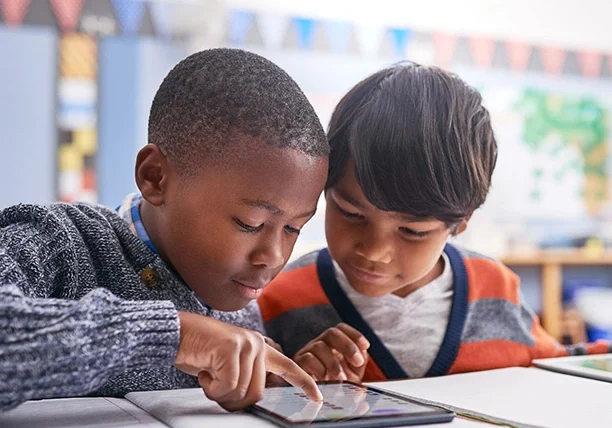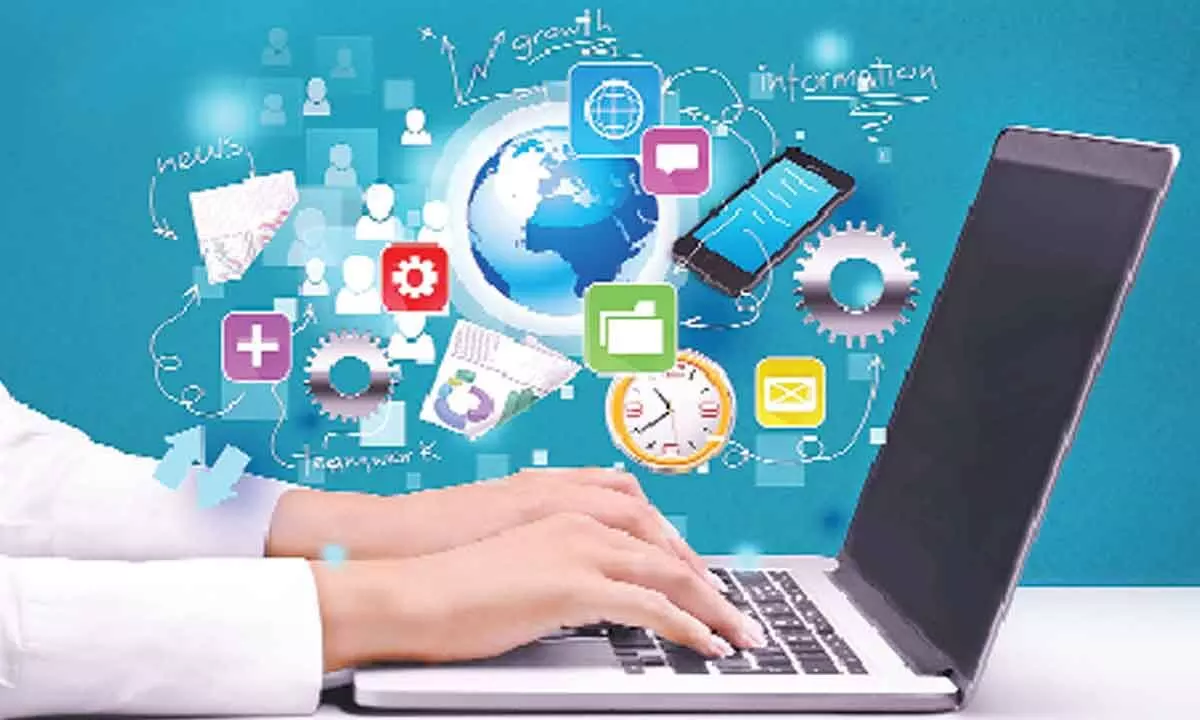Essential Resources for Institutions to Improve Their Strategy to Modern Technology Education
As establishments aim to improve their modern technology education and learning frameworks, the identification and execution of vital sources come to be vital. Cutting-edge curriculum designs that integrate modern technology, alongside efficient on the internet understanding platforms, can dramatically broaden educational access and engagement.
Ingenious Educational Program Layouts
In today's swiftly evolving technical landscape, instructors are significantly identifying the demand for innovative curriculum styles that successfully incorporate technology into discovering experiences. This combination is necessary for preparing pupils for a future where digital literacy is paramount. Innovative educational program styles integrate different pedagogical methods, ensuring that technology serves as a tool for enhancing engagement and helping with deeper learning.
One reliable method is project-based learning (PBL), where students take part in real-world issues, making use of modern technology to research study, work together, and present their findings. This technique not only cultivates critical reasoning yet likewise encourages the growth of soft abilities such as synergy and interaction. Additionally, adaptive learning technologies can individualize the academic experience, satisfying specific discovering designs and rates.
Additionally, interdisciplinary methods that mix topics, such as combining science and modern technology with the arts, help produce a much more holistic understanding setting. This promotes creativity and advancement, equipping trainees with the skills essential to flourish in a facility, interconnected globe. Eventually, cutting-edge curriculum layouts are vital for cultivating a generation of learners who are not just skillful in innovation but are additionally adept issue solvers and crucial thinkers.
Online Learning Platforms
Several teachers are transforming to on-line discovering systems as essential devices for improving instructional ease of access and involvement. These systems promote a hybrid knowing setting that suits diverse understanding styles and speeds, making education and learning a lot more comprehensive. They use a series of sources, consisting of video clip lectures, interactive simulations, and discussion forums, making it possible for trainees to accessibility web content from anywhere at any moment.
Noticeable on the internet discovering systems, such as Coursera, edX, and Moodle, give establishments with the facilities required to supply high-quality technology education. These platforms can be customized to align with specific educational program goals and pedagogical strategies, ensuring that institutions can maintain their academic criteria while leveraging digital sources.
Additionally, online understanding systems sustain partnership among trainees and teachers, promoting a feeling of area and shared discovering experiences. Advanced analytics devices readily available on these systems enable educators to track pupil development and engagement, promoting prompt treatments when essential.
Expert Advancement Opportunities
Constant professional advancement is critical for instructors seeking to stay abreast of emerging technologies and pedagogical techniques in a swiftly progressing educational landscape (AI Tools). To effectively integrate modern technology into the classroom, instructors have to actively pursue opportunities that improve their skills and knowledge
Institutions should focus on using workshops, courses, and workshops focused on the latest technical developments and mentor techniques. These programs can attend to various aspects of technology education, consisting of coding, digital literacy, and making use of educational software. Furthermore, partnering with local colleges and tech companies can offer teachers access to specialized training and resources.
Online expert advancement systems likewise offer adaptability, permitting instructors to participate in self-paced knowing. Webinars and online conferences can facilitate expertise sharing among teachers worldwide, fostering an international viewpoint on innovation assimilation.
Furthermore, mentorship programs can link experienced teachers with those new to modern technology, promoting joint learning and support. By producing a society of continuous understanding, establishments can equip educators to welcome ingenious mentor strategies, inevitably enhancing student involvement and success in innovation education. Buying expert advancement not only benefits teachers however also considerably enriches the learning experience for pupils.
Joint Tools and Resources
Efficient assimilation of technology in education and learning also counts on making use of collaborative devices and resources our website that help with communication and synergy amongst instructors and pupils. Such devices improve interaction and cultivate a society of partnership, essential for modern-day understanding environments. Platforms like Google Workspace and Microsoft Teams make it possible for real-time file sharing, job monitoring, and smooth interaction, enabling groups to collaborate efficiently no matter geographical obstacles.
Furthermore, learning administration systems (LMS) such as Canvas and Moodle supply structured atmospheres for collaboration, where educators can create discussion forums, appoint team projects, and assist in conversations. These platforms not only simplify training delivery yet also urge peer-to-peer communication, important for constructing crucial reasoning and problem-solving skills.
Furthermore, tools like Padlet and Trello can be used to imagine ideas and manage tasks collaboratively, boosting project-based understanding experiences. By incorporating these collaborative sources, establishments empower both teachers and pupils to add proactively to their finding out journeys. Ultimately, the efficient use collective devices not webpage only enriches the academic experience however likewise prepares trainees to flourish in a significantly interconnected globe.
Area and Sector Partnerships
Neighborhood and market partnerships play a crucial duty in enhancing technology education by bridging the void between theoretical knowledge and useful application. These collaborations provide pupils with real-world experiences, enabling them to use class ideas to real difficulties dealt with by organizations. By engaging with local services and neighborhood organizations, academic organizations can create dynamic discovering settings that promote advancement and skill advancement.

Furthermore, these partnerships can lead to source sharing, where institutions gain from industry funding, knowledge, and technology. Such support not just improves educational offerings but also helps to grow a workforce that is well-prepared for the challenges of the modern-day economic situation. Inevitably, the synergy created via neighborhood and industry collaborations is crucial for promoting a culture of continual understanding and adjustment in innovation education, making certain that organizations stay responsive to evolving technical landscapes.
Conclusion

One effective method is project-based discovering (PBL), where pupils involve in real-world problems, making use of innovation to research, collaborate, and provide their findings. Additionally, flexible knowing innovations can personalize the instructional experience, catering to specific learning styles and paces.
In addition, mentorship programs can link seasoned instructors with those new to technology, promoting joint knowing and support. By producing a culture of constant learning, organizations can encourage educators to accept innovative mentor approaches, eventually enhancing pupil engagement and success in modern technology education. Eventually, the synergy created via area and sector partnerships is necessary for cultivating a culture of continual discovering and adjustment in technology education, ensuring that institutions continue to be receptive to developing technological landscapes.